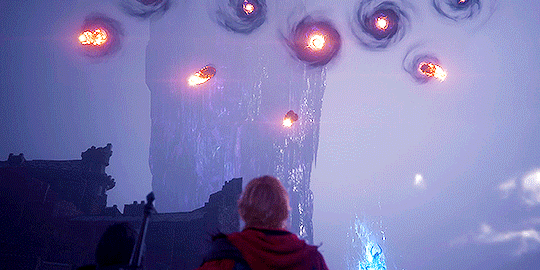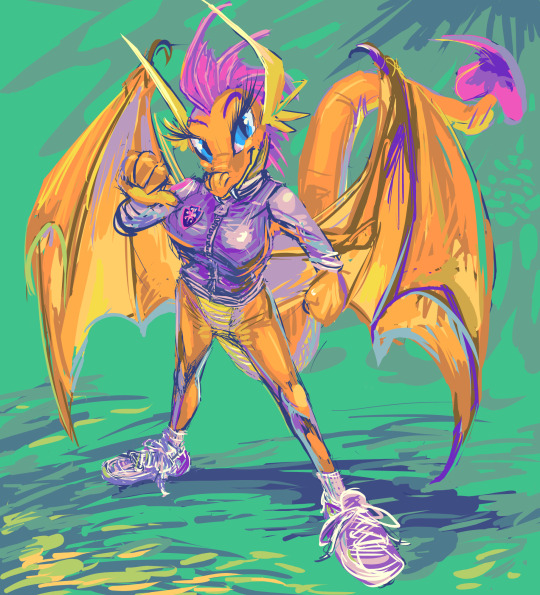#overconfidence
Text

#I'll leave this here#overconfidence#my goat !!!#f1#formula 1#lewis hamilton#formula one#lewis#lh44#mercedes amg f1#f1blr#mercedes f1#team lh44#singapore#singapore gp 2023#2023 singapore gp#p3 !!!!
418 notes
·
View notes
Text
Behemoth Comparison
Final Fantasy XVI
Joshua: "....that's a behemoth."
Clive: "Who'd be mad enough to tame such a beast?"

Final Fantasy XV
Noctis: "Hey Prompto, make sure you get a shot of me with it."

(yahhh i know, FFXVI Behemoth was much stronger.)
(yahhh maybe Noctis didn't say that line but the VIBE was there!)
#overconfidence#behemoth#final fantasy 15#final fantasy 16#final fantasy xv#final fantasy xvi#ffxv#ff16#ffxvi#ff15#chocobros#joshua rosfield#clive rosfield#noctis
41 notes
·
View notes
Text

I shot two bullets into the wall
Just to stand between the eyes of God
To let him see
To let him weep
At the construct he cast aside
19 notes
·
View notes
Text

I’m Armageddon’s Son
8 notes
·
View notes
Text

That baby’s just small change to my emerald beauty!
#cosmic odyssey#green lantern#john stewart#martian manhunter#j’onn j’onzz#xanshi#overconfidence#Jim Starlin#mike mignola#dc comics#comics#80s comics
20 notes
·
View notes
Text
overconfidence a.. *slow* and insidious killer
now that sounds like it can be disproved in the name of Science most easily
2 notes
·
View notes
Text
14 February ko ek rose toh main bhi deserve karti hu
#overconfidence#overconfident#ik#desi teen#desi tumblr#desi dark academia#desi tag#being desi#desi things#desi girl#desi academia#growing up desi#desi kids#desi jokes#desi memes#desi shit posting#indian memes#desi#valentines#valentine#valentines day#desi culture#desi stuff
22 notes
·
View notes
Photo

femoral sketch 8, for wootmaster
free sketchish number 8 for https://twitter.com/woot_master, of a creature said to be called smolder, who seems to believe this situation is under control.
I think this character is from mindcraft or something
16 notes
·
View notes
Text


Abstract
In this article, we examine psychological features of extreme political ideologies. In what ways are political left- and right-wing extremists similar to one another and different from moderates? We propose and review four interrelated propositions that explain adherence to extreme political ideologies from a psychological perspective. We argue that (a) psychological distress stimulates adopting an extreme ideological outlook; (b) extreme ideologies are characterized by a relatively simplistic, black-and-white perception of the social world; (c) because of such mental simplicity, political extremists are overconfident in their judgments; and (d) political extremists are less tolerant of different groups and opinions than political moderates. In closing, we discuss how these psychological features of political extremists increase the likelihood of conflict among groups in society.
In a polarizing political climate, citizens frequently experience a clash of values when debating pressing societal issues. A central question in political psychology has been how the general ideologies that represent these values drive human cognition, emotion, and behavior. Notably, the rigidity-of-the-right model stipulates that the political left and right differ in their cognitive styles, as reflected in increased closed-mindedness among individuals on the right (Jost, 2017). In recent years, however, researchers have increasingly recognized that not only political orientation but also political extremism meaningfully predict people’s responses to societal and political events. We define political extremism as the extent to which regular citizens are polarized into, and strongly identify with, generic left- or right-wing ideological outlooks on society. In this article, we examine psychological features of extreme political ideologies. In what ways are political left- and right-wing extremists actually quite similar to one another and different from moderates?
The basic idea that left- and right-wing extremists share a range of psychological similarities is consistent with theories of extremism and radicalization (e.g., Kruglanski et al., 2014; see also Greenberg & Jonas, 2003; Hoffer, 1951). The goal of this article is to examine the psychology of extreme political ideologies by integrating these prior theoretical insights with recent findings. We specifically propose four interrelated psychological features that characterize political extremism. Moreover, although we do not dispute that political orientation predicts important psychological variables (e.g., acceptance of inequality), we illuminate how some psychological features that were historically attributed to the political right might more accurately be attributed to both political extremes.
Political Extremism: Four Psychological Features
Although we do not claim that the propositions reviewed here represent the only psychological features of political extremism, they are well supported by empirical evidence, have been frequently studied by psychologists, and jointly contribute to a parsimonious understanding of this phenomenon. We specifically examine the relationships between political extremism and (a) psychological distress, (b) cognitive simplicity, (c) overconfidence, and (d) intolerance.
[..]
Discussion
The four psychological features discussed here suggest that political extremism is fueled by feelings of distress and is reflected in cognitive simplicity, overconfidence, and intolerance. These insights are important to understanding how political polarization increases political instability and the likelihood of conflict between groups in society. Excessive confidence in the moral superiority of one’s own ideological beliefs impedes meaningful interaction and cooperation with different ideological groups and structures political decision making as a zero-sum game with winners and losers. Strong moral convictions consistently decrease people’s ability to compromise and even increase a willingness to use violence to reach ideological goals (Skitka, 2010). These processes are exacerbated by people’s tendency to selectively expose themselves to people and ideas that validate their own convictions. For instance, both information and misinformation selectively spread in online echo chambers of like-minded people (Del Vicario et al., 2016).
This article extends current insights in at least three ways. First, the features proposed here help to explain why throughout the past century not only extreme-right but also extreme-left movements (e.g., socialism, communism) have thrived in times of crisis (Midlarsky, 2011). Second, understanding the mind-set of extremists in all corners of the political spectrum is important in times of polarization and populist rhetoric. The current propositions provide insights into why traditionally moderate parties in the EU have suffered substantial electoral losses. In particular, the support for well-established parties on the moderate left (e.g., social democrats) and moderate right (e.g., Christian democrats) has dropped in recent years, whereas the support for left- and right-wing populist parties has increased (Krouwel, 2012). Third, the present arguments are based on evidence from multiple countries with different political systems (van Prooijen & Krouwel, 2017), which suggests that they apply to both two-party systems (e.g., the United States) and multiparty systems (e.g., many European countries).
[..]
To conclude, although there are important psychological differences between people with left-wing and people with right-wing ideologies, there are also substantial similarities between left- and right-wing extremists that differentiate them from political moderates. The features presented here provide a psychological perspective on political extremism and contribute to a more complete understanding of how political ideology predicts human cognition, emotion, and behavior.
==
Explains the authoritarian streak coming from both sides.
#horseshoe theory#political extremism#far right#far left#political moderates#far left extremism#far right extremism#political polarization#polarization#intolerance#cognitive simplicity#black and white thinking#overconfidence#psychological distress#authoritarianism#religious authoritarianism#woke authoritarianism#religion is a mental illness
16 notes
·
View notes
Text
youtube
#foolish#foolishness#cognitivebias#cognitivebiases#overconfidence#oversmart#psychologicalfacts#stupid#stupidity#Youtube
2 notes
·
View notes
Text

overconfidence
2 notes
·
View notes
Text

Why are you wearing that stupid bunny suit?
Why are you wearing that stupid man suit?
9 notes
·
View notes
Text
You ever have those moments where like you explain so little people get the wrong impression like I can say I’m the shortest in my friend group and you’d think that means I’m short. But I’m not all my friends are just tall as shit and the weirdest part is that cause I have a huge ego I feel taller than them anyways so in the end it’s just fucking confusing. Cause I’m average height but I’m short when with friends but I feel taller than them anyways maybe cause my personality makes me feel bigger?
#anyone have confusing stuff like that#overconfidence#confidence#huge ego#ego#average height#no i'm not short#they’re all tall#so yeah
2 notes
·
View notes
Text

Mountains have a way of dealing with overconfidence.
2 notes
·
View notes
Text
overconfidence
often breeds embarrassment
and egg on my face
🍳
ME
#poetry#haiku#word doodles#worddoodles#overconfidence#public embarrassment#im an embarrassment#foolishness#stuff#truth
0 notes